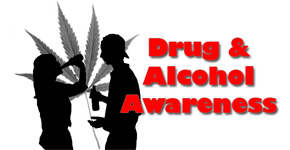With 2010 now at hand, opportunities to stay away from teenage drinking and irresponsibility have come back to the surface.
 The New Year is finally here, and many TJ traditions are taking place in the near future. The Valentine’s Day dance Eros, winter and spring pep rallies, and for seniors, prom. In the past, all of these events have posed the dilemma of whether teenagers should get intoxicated or not. The start of 2010 seems to be a great time for teenagers to break away from this stereotype and prove they can still have safe, sober fun.
The New Year is finally here, and many TJ traditions are taking place in the near future. The Valentine’s Day dance Eros, winter and spring pep rallies, and for seniors, prom. In the past, all of these events have posed the dilemma of whether teenagers should get intoxicated or not. The start of 2010 seems to be a great time for teenagers to break away from this stereotype and prove they can still have safe, sober fun.
The facts get drastically more shocking as the years go by and teenagers continue to get into even more trouble at even younger ages. Across the country adults and other teenagers who see a decline in their generation’s ability to avoid bad decision-making are trying to tackle the conflict: how do we solve the issue and keep kids safe?
According to starbreezes.com, most teenagers have their first drink by the age of 13. About 60% of high school seniors drink alcohol on a weekly basis, and 11% of the alcohol that is consumed in the United States is consumed by underage drinkers. These facts and statistics are scary, and increasing everyday.
Because teenagers are naturally more vulnerable than adults, they are also more likely to make decisions without being aware of the consequences if caught. They are more likely to drink and drive, more susceptible to brain damage and memory loss than adult drinkers, and are more likely to be sexually active and less likely to practice safe sex. Alcohol use in teens often also leads to experimenting with illegal drugs as well, which can bring forth a whole new set of problems in the teens’ lives. To put it very matter-of-factly, no good comes out of teenage drinking.
Everyday, on average, 11,318 American youth try alcohol for the first time, compared with 6,488 for marijuana, 2,786 for cocaine, and 386 for heroin. These facts portray a serious problem in America today: a drug and alcohol epidemic.
One of the major contributing factors to teens using drugs and alcohol is boredom. Most are lead to believe they must get intoxicated before events in order to have fun; when in reality, all it takes is a little extra planning in order to have fun without being intoxicated. Before a big event, like a school dance, establish what your group will be doing before and after the actual dance. For example, after the event, take a midnight bowling trip, participate in a game of laser tag, or have a late dinner with friends. Before the dance, have the entire group gather at one house and all get ready together, organize a pot-luck hors d’oeuvre party at someone’s house, or have a car decorating contest. There are plenty of other options out there that can replace drugs and alcohol and provide an even better, sober night.
The purpose of this article is not to preach to students about facts that are repeated on a daily basis, but to inform teenagers the statistics they are contributing to if they decided to drink and do drugs. The numbers above are real and are frightening, and only the teens themselves can make a difference and change the negative traditions that have gone on for so long. This year holds bright opportunities for the current teenage generation, but it’s up to them whether or not they decide to embrace them.